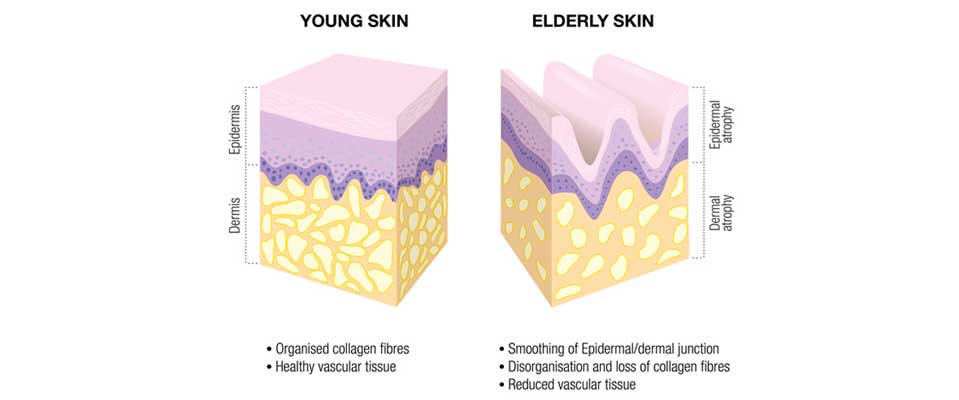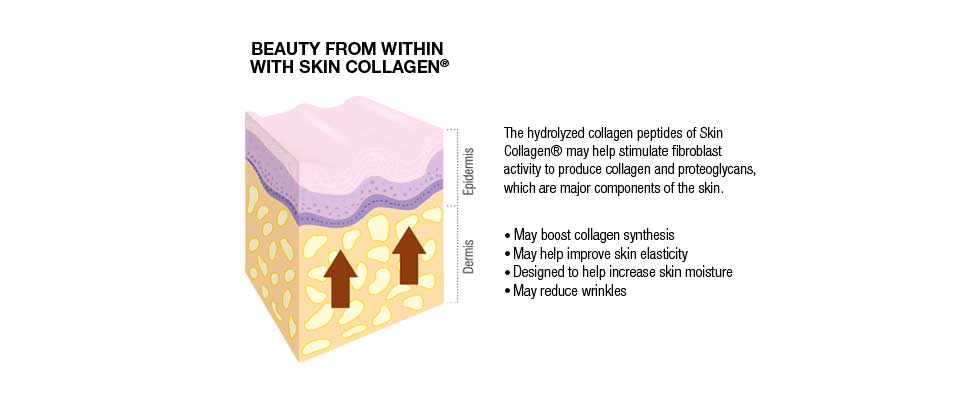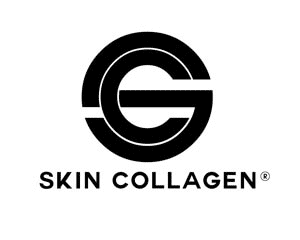WHAT IS COLLAGEN?

When we launched our products a few years ago, we started to receive many questions about collagen, such as "What is collagen?", "Why is collagen important for the skin?" and "What is the difference between collagen type 1 and type 2?". Because there is a lot of misleading information on the internet about collagen, this encyclopedia website was created to provide correct information to help consumers understand collagen a bit better.
Collagen is the most abundant protein in the human body and it is also the major structural component of human skin, comprising about 80% of its dry weight. This natural component is also found in the bones, tendons, ligaments, muscles and organs. About 60–70 percent of human body is water, and the second most important components are the proteins with a 20 percent share. Collagen represents about 30–35 percent of all human proteins and it is the most important component of the connective tissue.
Collagen is a vital component of the whole body and it has been divided into 28 types according to the structure they form in our bodies. The most common ones are type 1, type 2 and type 3. Collagen type 1 occurs in our skin, tendons, bones, organs, fascia, teeth and vascular ligatures. Collagen type 2 is the major structural protein in the joint cartilage, and collagen type 3 on the other hand, is found alongside the type 1 in our organs and it is the main component of the reticular fibers.
As we age, the body's ability to produce collagen decreases in all parts of the body. For example the epidermis, which is the outer layer of the skin, is affected by the second inner layer called dermis, where all the skin's collagen production occurs. Skin properties are greatly affected by endogenous and environmental factors including ageing, sun exposure, skin damage, hormones and nutrition. Also, exposure to toxins such as cigarette smoke and pollutants, affect the collagen production in dermis.
Collagen mainly influences the skin's water binding capacity, elasticity and outside appearance as wrinkles. The collagen production naturally begins to slow down as we age. Loss of collagen normally starts at the age of 25 and significantly increases after menopause. Women for example, produce less collagen than men, and this collagen is lost by merely 1–2% per year. By the age of 50, a woman has naturally lost almost 50% of the collagen from her skin.
Also our joints, tendons and bones start to lose collagen with age. The collagen production slows down in our joint cartilage tissue, causing us joint problems such as joint pain and degeneration of the joint cartilage. Also the loss of collagen in our bone tissue may cause bone degradation and bone fractures.
Fortunately there is still hope, because several clinical studies have shown that a regular supply of the specific collagen peptides may help rejuvenate our skin tissue, joint cartilage tissue and bone tissue by stimulating the collagen production in different parts of our bodies. There are multiple collagen products on the market, but most of these products are only partially hydrolyzed peptides with high molecular weight, which unfortunately do not work properly in specific areas of our bodies. Instead, these bulk collagen products are just basic protein powders and nothing more.
Many companies are also advertising their collagen products by separating them by types. Normally these companies offer type 1 collagen for skin and type 2 collagen for joints. This is unfortunately misleading marketing, because these powders never contain one specific type of collagen, but a mixture of many collagen types. This is due to a fact, that it is virtually impossible to separate certain collagen types in the manufacturing process of collagen peptides. Only pharmaceutical products may have one specific type of collagen available.
Instead, what distinquishes collagen powders from each other, is how these powders have been manufactured. The best way to define and classify collagen peptides are by their average molecular weight distribution and peptide profile. So, there are good options available and all the best collagen powders have been manufactured through a rigorous hydrolysis, which produce specific short chain collagen peptides. These high-end collagen peptides are rapidly absorbed by the body and affect in specific parts of the body. Unfortunately only a small fraction of the collagen products on the market contain these high-end collagen peptides.
Secondly, the best collagen peptides do not directly increase the amount of collagen in the body, but may stimulate the body's own collagen production. Certain short-chain collagen peptides may be able to stimulate the collagen type 1 production of the skin, while other specific collagen peptides may stimulate the collagen type 2 production of the joint cartilage. So, what separates these collagen powders from each other, is only the hydrolysis and naturally the source of the raw material.
Here is one example of how these high-end hydrolyzed collagen peptides work:

Clinical studies have shown significant, sustained and cause-related improvement of skin conditions with the use of the specific hydrolyzed collagen peptide powder, which is the only ingredient in our Skin Collagen® product. These studies have shown that the skin's pro-collagen was increased substantially with the use of these hydrolyzed collagen peptides.
Collagen peptides have also shown to significantly help reduce wrinkles, increase skin elasticity, and increase skin hydration. The moisturizing effect suggests that collagen peptides improve epidermal barrier regeneration and matrix synthesis of dermal proteoglycans in aged skin. 
